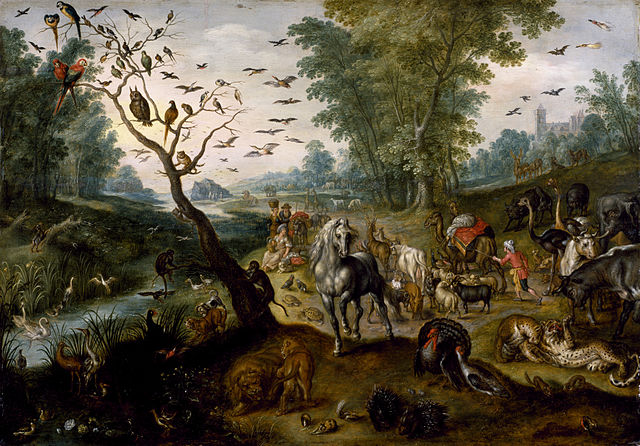Whether one acknowledges the dignity of animals depends on that person’s paradigm (vision of the world and values). Two paradigms have been handed down to us since the most remote antiquity, and still endure today.
The first understands the human being as part of nature and, with her, another inhabitant participating in the immense community of life that has existed for 3.8 billion years. When the Earth was nearly complete, with all her biodiversity, we arose on the evolutionary scene as one more member of nature, one endowed with a singular characteristic; that of having the capacity to feel, think, love and care. This does not give us the right to consider ourselves masters of the reality that preceded us and that created the conditions for us to emerge. The culmination of evolution occurred with the appearance of life, not with the human being. Human life is a sub-chapter in the main chapter of life.
The second paradigm starts with the idea that the human being is the apex of evolution, and that all things are at his disposal to dominate and use as the human being pleases. He forgets that to emerge, humans needed all the natural factors that preceded us. Humans joined everything already in existence; he was not placed above everything else.
The two positions have had representatives throughout the centuries, who exhibited very different behavior. The first position finds its best manifestation in the Orient, with Buddhism and the religions of India. Among us, besides Bentham, Schopenhauer and Schweitzer, its main proponent was Francis of Assisi, considered by Pope Francis in his Encyclical letter “On the caring for the Common Home” as someone «who lived a marvelous harmony with God, with others and with himself… an example of integral ecology» (n. 10). But this tender and fraternal behavior of fusion with nature is not the vision that prevailed.
In the second paradigm, the human being is the “master and lord of nature”, as Descartes put it, who made himself hegemonic. It sees nature from the outside, not part of nature, but as her master. This is the root of modern anthropocentrism. Humans dominated nature, subjugated peoples and exploited all the Earth’s resources, such that we now have reached a critical point of insustainability. Its representatives are the founding fathers of the modern paradigm, such as Newton, Francis Bacon and others, and contemporary industrialism, which views nature merely as a collection of resources for its enrichment.
The first paradigm –the human being as part of nature– enjoys a fraternal and amicable relationship with all beings. The Kantian principle must be widened: not only is the human being an end in itself, but so are all living beings, which therefore must be respected. There is scientific data favoring this position. When Drick and Dawson decoded the genetic code in the 1950’s, it was shown that all living beings, from the most ancient amoeba, through the great jungles and the dinosaurs, and down to us, the human beings, possess the same basic genetic code: the 20 amino acids and four phosphoric bases. This led The Earthcharter, one of UNESCOS’ principal documents on modern ecology, to affirm that «we have a kinship spirit with all life» (Introduction). Pope Francis is more emphatic: «we walk together as brothers and sisters, and a link binds us with tender affection to Brother Sun, Sister Moon, to Brother River and Mother Earth» (n. 92). From this perspective, all beings, since they are our cousins and bothers and sisters, and possess their own form of sensibility and intelligence, are endowed with dignity and rights. If Mother Earth has rights, as the United Nations has affirmed, they, as living parts of the Earth, participate in those rights.
The second paradigm –the human being as the master of nature– has a utilitarian relationship with other beings and animals. On learning how cattle and poultry are slaughtered, we are terrified by the suffering to which they are subjected. The Earthcharter warns us: «wild animals must be protected from hunting methods, traps and fishing that cause extreme, prolonged and avoidable suffering» (n. 15b). Here we remember the wise words of the Suquamish-Duwamish Elder Grandfather Si’aul, aka, Seattle, (1854): «What is man without the other animals? If all the animals disappeared, man would die of spiritual loneliness. Because what happens to the animals will also happen to man. We all are related».
If we do not convert to the first paradigm, we will continue with the barbarity against our brothers and sisters in the community of life, the animals. As ecological consciousness grows, we become ever more aware that we are related, and as such we should treat each other as Saint Francis treated the brother wolf of Gubbio, and the simpler beings of nature.
